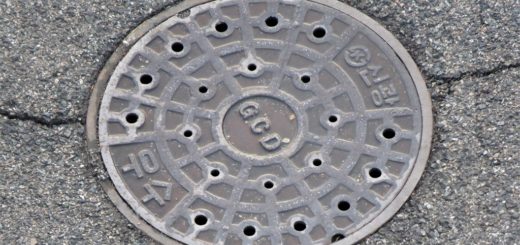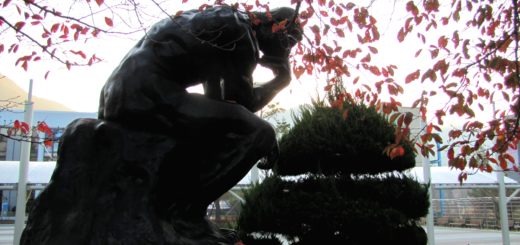Trump in the State of Nature
Donald Trump lives for his ego. He may be the purest living instantiation of Hobbes’ depiction of man in the state of nature, ruled entirely by fear of violent death and vainglory. As he respects no law — let alone the rule of law — he is effectively, subjectively, trapped in Hobbes’ hypothesized condition of raw nature: the war of all against all, in which life is solitary, nasty, brutish, and short.
In this condition, survival becomes the paramount consideration at all times. His is not merely a desire for physical self-preservation, however, but rather, due to the bifurcated motives (fear and vainglory), for survival of face. That is, the most urgent motive in the soul of this uncivilized, or rather pre-civilized, creature is the desire not to look bad. The mediate urge to glory (ego-gratification, reputation), which, according to Hobbes, dominates the public persona of man in civilized society, is continually undermined in Trump’s pre-civilized reality by the more immediate impulse — the precursory form of the same urge — to avoid embarrassment.
This, I believe, is the psychological mechanism which explains Trump’s instinct to push every potential failure, every source of ridicule or criticism, one step further. He needs to “show them,” to show us all, that he wasn’t wrong, that he didn’t make a mistake, that he never makes mistakes. He cannot be allowed to look bad. And so he doubles down on his worst ideas, becomes entrenched in error, gets so emphatically obsessed with the thing people don’t like about him that he willfully turns that very failing or source of criticism into an essential trait, into his identity.
Hence, rather than reconsider his bias toward economic protectionism, and his narrow-minded understanding of, and disdain for, the free market, Trump faces down his critics by brashly declaring himself “Tariff Man.” (In the same manner, he continues to insist on kowtowing to Vladimir Putin, in answer to accusations of being Putin’s lapdog, or to amplify his expressions of personal friendship and admiration for Kim Jong-Un, precisely when it appears to the world that Trump has been had by the small-time thug dictator.)
Thus, today, as even the Republican establishment seems to have given up trying to defend or make excuses for the tariff policies, Trump has gone on a Twitter rant to insist — to demand — that the tariffs have paid huge dividends for Americans. You are welcome to follow the link above and read his diatribe. I won’t waste time here in Limbo analyzing the specifics of such meandering egomania, except to point out this one:
In one year Tariffs have rebuilt our Steel Industry – it is booming! We placed a 25% Tariff on “dumped” steel from China & other countries, and we now have a big and growing industry. We had to save Steel for our defense and auto industries, both of which are coming back strong!
— Donald J. Trump (@realDonaldTrump) May 14, 2019
I addressed the steel industry issue back at the start of this tariff nonsense. As usual, Trump has been suckered, this time by his tariff “advisor” and chief advocate, Secretary of Commerce Wilbur Ross, who makes millions from investing in unprofitable steel companies, and therefore has a vested financial interest in skewing the market temporarily toward American steel. More generally, picking winners and losers in the economy — that is, among Americans — and then boasting about how much he personally has done for this or that favored faction, is nothing Trump has any qualms about. The issue for Trump is always utilitarian and immediate, namely “What will make the greatest number of people love and admire me right now?”
Trump also mentions, in the same series of tweets defending his tariffs, that “My respect and friendship with President Xi is unlimited.” Wonderful: another tyrant, and the most dangerous one currently on the planet, is on Trump’s list of men whose butt he just needs to kiss in public. Unlimited friendship. That’s lovely, and I’m sure Kim and Putin are jealous. I know many will insist that Trump says these things because he is a brilliant negotiator. No; he says these things because, for all his tough talk, he is always begging the bullies not to beat him up at the same time he is talking big to you about how he’s going to defeat them. He is moved by the combination of fear and vainglory. In everyday terms, he is a blowhard. In terms of historical analogy, as I have pointed out before, he is Mussolini-esque.
This makes him a very weak man, psychologically. It also makes him a very problematic man in whom to invest real power. He currently occupies the biggest and most important seat of power on Earth.



